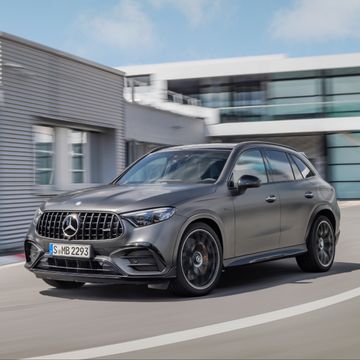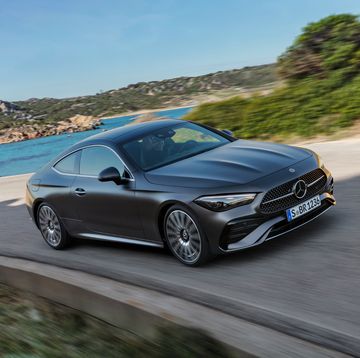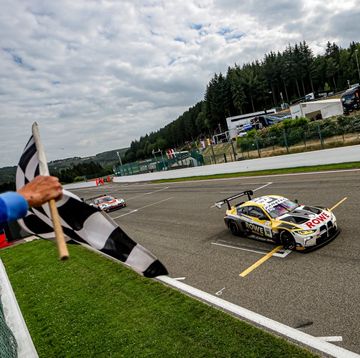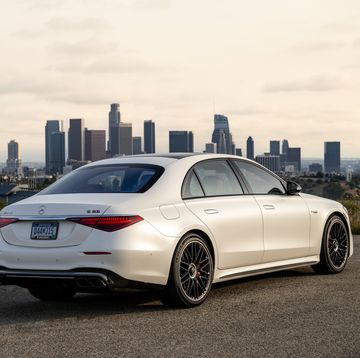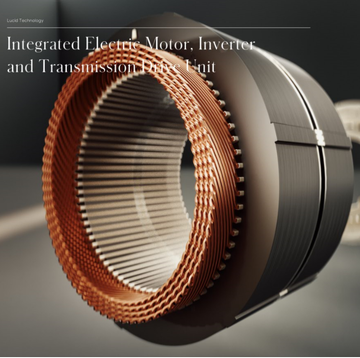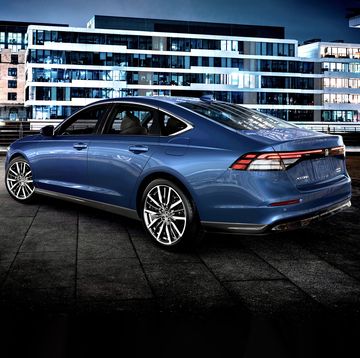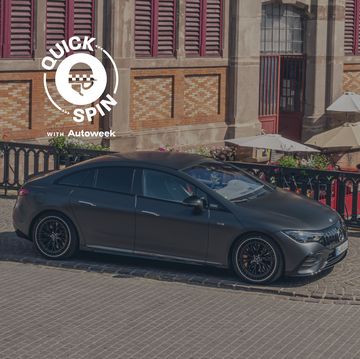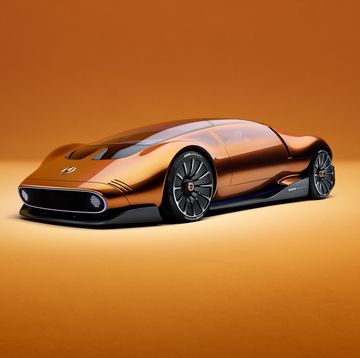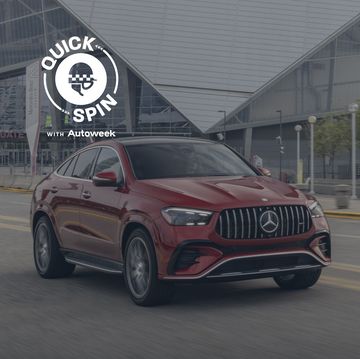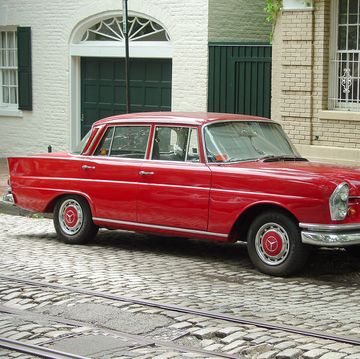- Mercedes-Benz subsidiary Daimler Truck is testing a prototype Unimog with a hybrid hydrogen combustion and diesel engine.
- The automaker says that battery-electric and hydrogen fuel-cell powertrains may not always make sense for some types of construction machinery given their power requirements.
- The prototype Unimog uses a hydrogen combustion engine from specialist Keyou along with a traditional diesel engine, and will soon be tested with grass mowing attachments.
As some automakers continue to experiment with hydrogen fuel-cell technology, one other type of hydrogen propulsion may have seemingly faded into the rear view mirror. One of the last few times we've seen hydrogen as a fuel source for internal combustion engines was in the BMW 750hL, which used a 5.4-liter V12 that could run on gasoline or hydrogen fuel. The engine was not exactly the paragon of efficiency in either form, producing 204 hp, but it did offer a zero-emission travel experience, paving the way for experiments with the next-gen E65 7-Series.
But this technology has not disappeared from the scene entirely, even as automakers have increasingly turned to battery-electric powertrains. And it could be paired even with diesel engines, of all things.
This month Mercedes-Benz has revealed a Unimog prototype with a hydrogen-powered combustion engine, as part of a publicly funded WaVe project organized by Germany's Federal Ministry for Economic Affairs and Climate Action. The goal of the project is to discover if the tasks of a diesel engine working as a multi-power distributor could be performed by a hydrogen-powered combustion engine, as Unimogs use their engines to power their attachments.
The Unimog prototype itself uses a hydrogen combustion engine from specialist Keyou, and injectors from Hoerbiger. The system requires a separate tank for the hydrogen, of course, though it's much smaller than the main diesel fuel tank.
Mercedes-Benz Special Trucks completed testing of the hydrogen combustion engine on a test stand just a few months ago, in the fall of 2022, and installed it on the Unimog body by turn of the year, carrying out testing it on the road in recent months. The automaker plans to test the Unimog with a lawn mowing attachment later on in 2023.
Why is Mercedes-Benz looking at hydrogen combustion at a time when heavy municipal vehicles are starting to go electric?
"This is because the implement carrier places high demands on output, performance and payload," the automaker says, referring to the equipment that can be fitted to Unimog 4x4s. "However, as space is limited, the installation of a purely battery-electric drive or hydrogen-based fuel cells would be challenging."
Of course, cost is one of the considerations here as well, though we suspect that a hydrogen engine isn't exactly a cheap alternative to a purely diesel Unimog. But given the cost of batteries, as well as the state of battery energy storage technology at the moment, it is perhaps too soon to talk about battery-electric Unimogs.
The concept also doesn't bypass other costs, namely the cost and availability of hydrogen. In the past two years a number of European truck makers have collaborated on building a hydrogen corridor for to be used by long distance fuel-cell trucks, aiming to connect port cities to manufacturing centers. And it's this building effort that has reenergized interest in hydrogen as a fuel source for municipal vehicles such as recycling trucks and other machinery.
"With our Unimog, which can be used all year round, we have been highlighting the diversity of the implement carrier for decades in fields of application such as green area maintenance, horticulture and landscaping or winter service, among other things," said Franziska Cusumano, head of Mercedes-Benz Special Trucks & Custom Tailored Trucks.
Still, this is a niche technology that will see considerable pressure from EV powertrains, as well as hydrogen fuel-cell vehicles in the coming years.
Will municipal work vehicles eventually go electric, or will other powertrains such as this sometimes make sense for machinery of this type? Let us know what you think.

Jay Ramey grew up around very strange European cars, and instead of seeking out something reliable and comfortable for his own personal use he has been drawn to the more adventurous side of the dependability spectrum. Despite being followed around by French cars for the past decade, he has somehow been able to avoid Citroën ownership, judging them too commonplace, and is currently looking at cars from the former Czechoslovakia. Jay has been with Autoweek since 2013.


